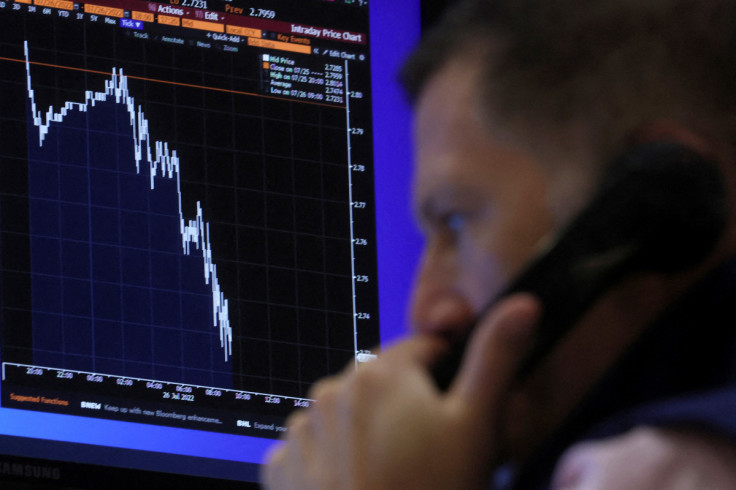Fed Seen Slowing Pace Of Rate Hikes In December

The Federal Reserve is seen backing off of its aggressive rate-hike pace starting in December after a raft of data published Thursday added fresh evidence that the economic slowdown that the central bank has sought to engineer is underway.
Fed Chair Jerome Powell and his 18 fellow central bankers are still expected to back a fourth-straight 75-basis-point rate hike at their meeting next week.
But betting in rate futures markets is now running strongly in favor of a half-point increase at the Fed's December meeting -- a move that would bring the policy rate to a 4.25%-4.5% range -- and no more than a half a point further over the next two meetings.
Graphic: December downshift? -
Bets are also increasing on interest rate cuts for the latter part of 2023, a reflection of trader expectations that for a Fed response to what many economists expect by then will be at least a mild recession.
U.S. economic growth rebounded in the third quarter, data Thursday showed, but the same report from the Commerce Department showed consumer spending slowed to a 1.4% rate from the prior quarter's 2.0% pace, and the GDP deflator - an indication of price pressures -- eased to 4.1% from the prior quarter's 9%.
A separate report showed new orders for non-defense U.S. capital goods excluding aircraft, seen as a proxy for business spending, unexpectedly fell.
The slowdown in consumer spending is an "indication that higher interest rates are biting into the pocketbooks of the consumer," said Peter Cardillo, chief market economist at Spartan Capital Securities in New York.
The Fed has lifted interest rates by a full three percentage points so far this year. Though the housing market has slowed dramatically, evidence of higher interest rates cooling demand in other parts of the economy has been sparse.
Fed policymakers have signaled they will keep raising interest rates to bridle demand in a bid to bring down inflation running far higher than the Fed's 2% target. At next week's meeting they will likely seek to keep their options open as they parse the data in the lead-up to their last meeting of the year on December 13-14.
Thursday's data suggests the tide may already be turning.
"Real consumer spending on goods will fall further, services spending will slow, there are signs that business investment is wavering, and the housing market is reeling under the weight of higher mortgage interest rates," wrote Regions' economist Richard Moody. "Moreover, the full impact of higher interest rates has yet to make its way through the economy."
© Copyright Thomson Reuters 2024. All rights reserved.





















